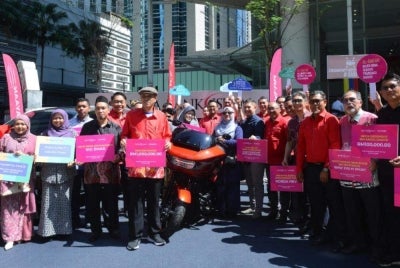Selangor reached its revenue collection target of RM2 billion

SHAH ALAM - The Selangor government recorded RM2 billion in state revenue collection as of Friday last week, as estimated in the Budget 2023.
Menteri Besar Datuk Seri Amirudin Shari said he is confident that the amount will continue to increase and it will not be impossible to reach up to RM2.5 billion by the end of this year.
"Until last week on Friday we have reached the target of RM2 billion revenue collection as estimated in Budget 2023.
"If we follow the current trend, in fact in August, September, the number might be better than previous achievements.
"Usually there will be a 'surplus', especially the investors who come and , so I can estimate the minimum we can get is RM2.3 billion to RM2.4 billion but to reach RM2.5 billion it is not impossible," he said when met at the monthly gathering of civil servants and the Raise the National Flag Campaign at the Sultan Salahuddin Abdul Aziz Shah building here.
Amirudin, however, said he did not want to be ambitious because revenue collection have their own sequences and usually stop at certain stages.
"So this is what we have to look at but the current situation is RM2.3 billion to RM2.4 billion (state revenue collection) ," he added.
When commenting on the order of the Sultan of Selangor Sultan Sharafuddin Idris Shah Alhaj regarding Selangor lagging behind in terms of investment and export value compared to Penang, Johor and Sarawak, Amirudin informed that investment in Selangor is still encouraging.
"What Tuanku mentioned is the value of exports and imports. There is indeed a slight shift in economic programmes within the Selangor state and part of our economy has gradually shifted to a service economy.
"So, our manufacturing is quite stagnant at a level compared to Penang (manufacturing sector) in electricity and electronics," he explained.
"However, since the Covid-19 pandemic, our economic programmes are more focused on the service industry such as logistics, hubs, distribution, this is the biggest contributor to the economy," he said.
Download Sinar Daily application.Click Here!















